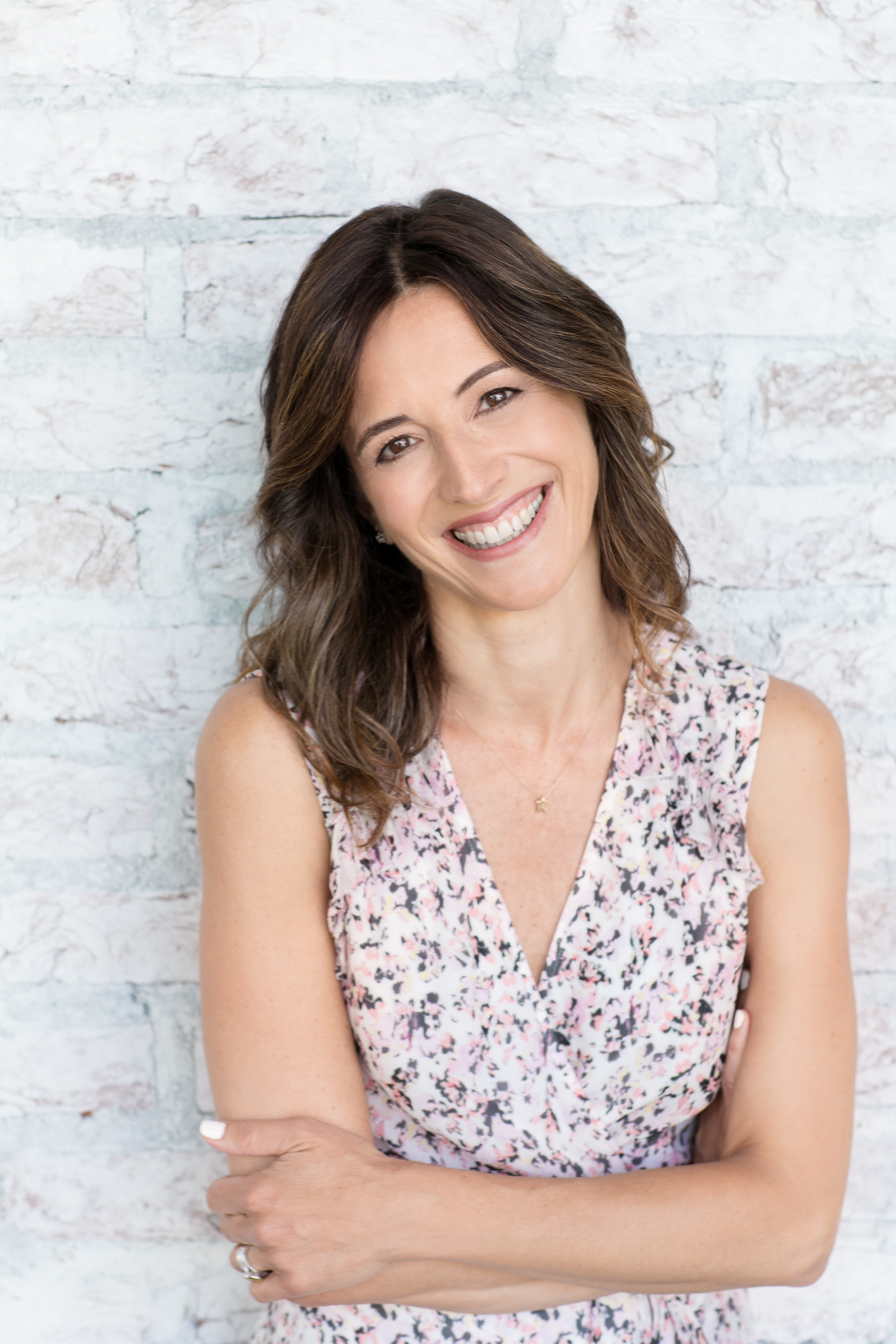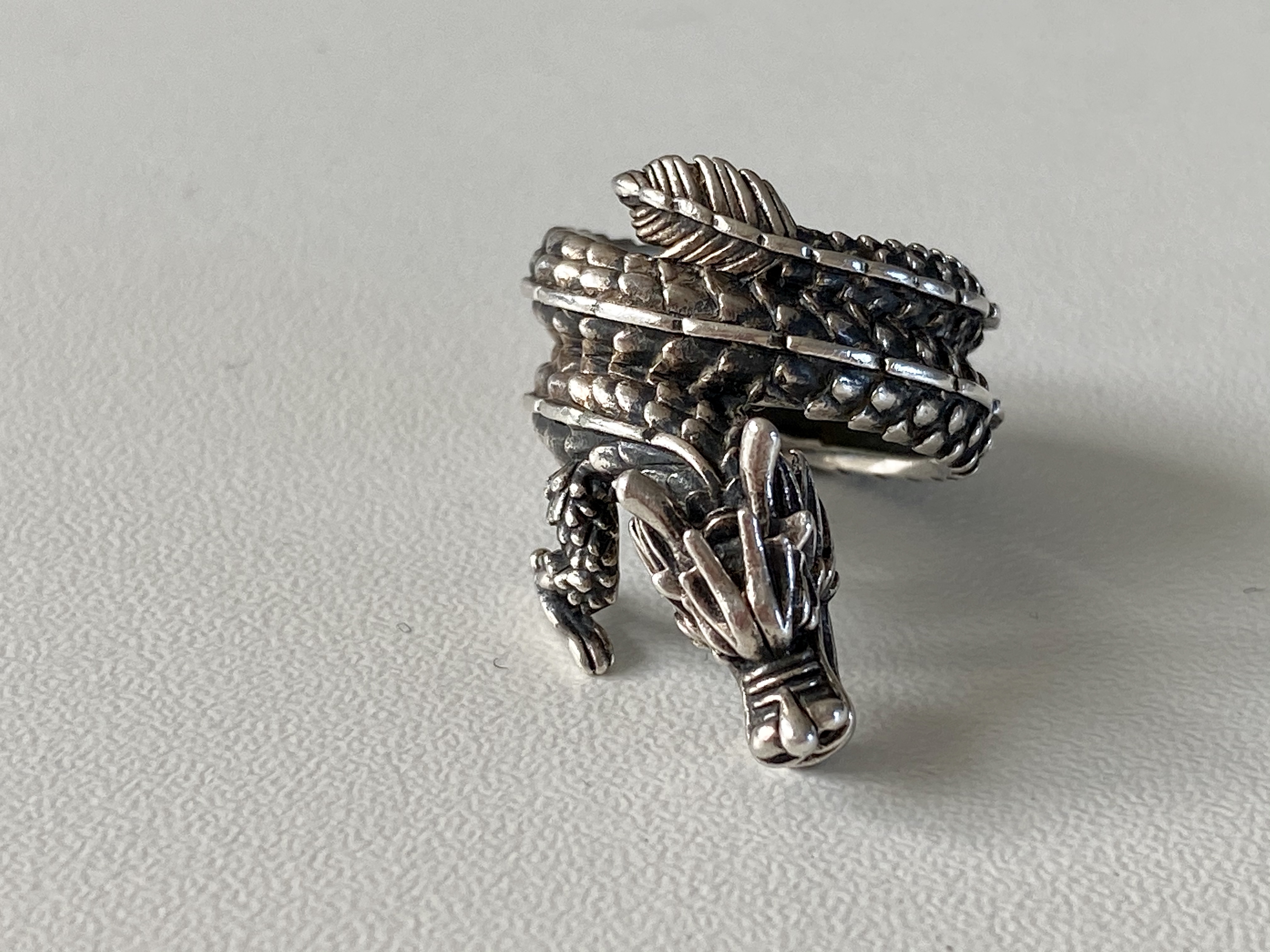I’m standing in front of my bathroom mirror, in my apartment in Vienna, Austria, putting the finishing touches to my makeup. It’s March 2009, evening, and it’s still getting dark early. The babysitter has arrived and is having dinner with the kids while I get ready. My Austrian husband and I are invited to an event hosted by an elite professional organization that’s considering having him join. He’s gone through the initial vetting and now they want to meet both of us before accepting him as a member. He’s excited. I’m not looking forward to being judged by Vienna’s business crème de la crème.
Instinctively, I chose to dress conservatively, in a little black dress and heels. But as I reach for a pair of earrings from my jewelry box, I notice my coiled dragon ring and smile. Wouldn’t it be fun to show up wearing that…Would my high-society interviewers be shocked by this contrast to my – otherwise proper – appearance? At some level, I hope so. It’s a small act of rebellion, but at least it’s something. I slip it on my finger. “I’m ready, let’s go,” I call out to my husband.
This is not the first work-related dinner we have attended as a couple. Thankfully, he doesn’t make me go to many of those; he knows how much I dislike them. I don’t enjoy being ‘spouse of…’. I have a Ph.D.; I’m a defense analyst by training; I have my own identity. Not that long ago I was giving briefings at the U.S. Department of Defense. Now, having limited job opportunities in Austria, I go to dinners where no one even asks me what I do (they assume nothing of interest). I feel invisible.
The evening is not as painful as I feared it would be. Everyone is nice to me – though, predictably, I don’t get any work-related questions. The only person I immediately hit it off with is the only other foreigner in the room – she notices my rebellious dragon ring and we talk. It’s the beginning of a beautiful friendship.
I had moved to Vienna eight years previously, from Los Angeles, where I did my doctorate. I neither chose nor wanted this move, but felt I had no choice but to follow my husband’s decision. It was go or leave, and I wasn’t ready to do the latter.
Vienna was literally the other end of the world from where I wanted to be. LA was my happy place. I was blossoming there – professionally and personally. My career was taking off. I had found a ‘tribe’ of good friends. As a native of Greece, I absolutely loved living close to the beach. I felt fulfilled, connected and alive. I felt at home.
Moving to Vienna meant losing my home. I resisted and resented the move every step of the way. But I went anyway. To say I was unhappy living in Vienna would be an understatement. I hated the long winters, a shocking contrast to my Mediterranean upbringing and the consistently mild climate in LA. I couldn’t adapt to the local culture or way of life. I didn’t ‘get’ the people – how they thought or acted. This was not my first international move, but it was the first time that nothing ‘clicked’. I couldn’t make Austria my home. I didn’t want to either.
The move also devastated my career. There is no future for a non-citizen defense analyst in a neutral country. Certainly, there was nothing even remotely comparable to the high-level work I was used to doing in the US. From the moment I set foot in Vienna, I had already decided in my head that my options were nonexistent.
All this made me see this move as a huge sacrifice that I resented deeply having to make. There was no way – short of moving back to LA – I could be happy again. I blamed my husband for making me move and was angry, resentful, unpleasant to be around. I felt like a victim and behaved like one.
I stayed that way for eight long years. Throughout that time, I made no effort to look for alternative career possibilities or to try to change my circumstances. The victim mindset kept me stuck right where I was. This doesn’t mean that being uprooted like that was acceptable or that my sacrifices weren’t significant. But the way I reacted hurt me even more. I chose a disempowering mindset when I could have focused on choices and possibilities instead.
There was no epiphany, no earth-shattering moment of insight that made me see that I could take back control of my life and change it for the better. The shift was subtle and gradual. It started with small rebellions, like wearing that dragon ring, that helped me remember who I really was. One small step after the other, I started taking responsibility for my own happiness – and my future. Rather than focusing on everything that was wrong or unfair about my situation and counting the obstacles in the way of having this one specific career that I was ‘owed’, I opened myself up to possibilities. As soon as I started to look for areas where I did have a choice, where I could make use of my talents and skills to build something new, I came up with ideas and started making things happen.
The first big step was finally to let go of the idea of continuing my previous career. I decided to use my skills as an analyst and experience living abroad to research and write a book about how to make great international moves. Through writing the book, I found that I could help people like me struggle a little less as they try to find home in the world. So I also decided to train to become a coach. Ultimately, I decided that it was time to be on my own. With every decision, I proved to myself that I could do it; that not only could I survive, but thrive. No longer holding someone else responsible for my happiness was immensely liberating. Just letting go of resentment raised my happiness index instantly.
Beyond wishing it hadn’t taken me close to a decade to get there, I don’t have any regrets. Looking back, I could have made the fundamental choice to leave victimhood behind earlier. At the same time, my experience made me very aware that there are many others like me out there, especially women, who feel like they have no options or control over their lives – whether it’s about following their partners around the world, putting their careers on hold, giving them up altogether or having to choose between a career and a family. My job – my mission, in fact – is to help them see that choices are everywhere. All you need to be able to see them is the right mindset.


